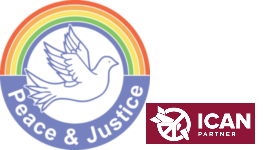My name is Léa Oval, I just graduaded from a master Environment, Communication and Culture at the University of Glasgow.
I am currently attending in Norway the 1st International Youth Peace Conference focusing on Climate Change. Youth came from all the continents for a week, to attend workshops on smart cities, how to communicate on environmental issues and other topics and how we can implement it back in our communities.
These events gathering youths from different backgrounds and facing different challenges are crucial in order to have a strong environmental movement and to feel empowered by each other strength and support to act out back in our communities.
The first workshop was about smart cities. We had to think of the challenge that cities face concerning resources shortages and how we can make them more sustainable. We were split into different type of cities. Philadelphia, favelas, Norwegian fjords towns and Zaatari refugee camp.
I worked on the Refugee camp. It was interesting and heart breaking to work on this project. Based on one of the biggest Syrian refugee camp in Jordan.
Key Numbers about the Camp
70 000 Syrians are living the camp.
4th largest ‘city’ in Jordan.
Rainfall will decrease by 30%
Temperatures will increase by 6°C.
Administration buildings
3 hospitals, 3 schools.
1st school opened on October 2012.
1 million litres of water delivered daily by trucks.
As we are expecting more and more displacement induced by Climate Change (the sea rise level, droughts, flooding) and conflicts that are following the intensification in weather events, we are expected to see refugee camps growing and appearing more often. The solution of dismantling them as they did about the refugee camp in Calais, la Jungle is only increasing their precarious situation and status of victimhood.
We were designing a camp that could be sustainable, as in providing enough resources and allow people to live in decent conditions and not as prisoners of a camp. In our group we could rely on the insight of a Syrian that fled his country and went through such camps in Greece.
We had to design it as if we had no means and we had recycle everything. We focused on how to provide food and how to increase their access to water. For water we used the techniques of reusing urines and drop to drop type of irrigation to water the crops. We have discovered a fantastic construction out of stick planted as a pyramid and within there is a plastic bag, that will be condensing humidity into water drops. It can provide up to 25 gallons of water !
For food, we designed a type of agro-forestry where trees will help maintained humidity in the soil. The biggest question I was facing, was how much do we want a refugee camp to be permanent ? There is a dilemma between a situation that should be momentarily, people should not stay in the refugee camp for long. However, these are displaced people longing for their home and known environment, and they have nothing to do in the camps but wait and survive. Nature can be a healing process to find back a feeling of being rooted in your environment. Therefore, we decided to have an agriculture that demands care and time and that is rooted in the place, so that at least until the end of the war, people can care and have the responsibility of their new environment. We also added a farming garden near the school, so that children could learn how to grow food and have fun with other species.
I realized how important it is to question our understanding of a refugee camp. Should we prioritize survival without considering that people coming there are more than victims? They have skills and knowledge that they could implement within the camp to make their lives a little bit easier.
There is a problem when we recreate the model of a prison, where humans are only in contact with other humans, and where there is a strong sense of hierarchy between the ones who hold the power of logistics and of design, such as the NGO and the UN and the people fleeing war, that are turned into victims and that are not in a position to ask for anything more than shelter and basic needs.


